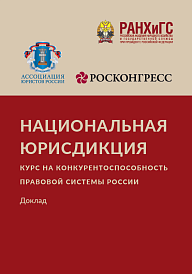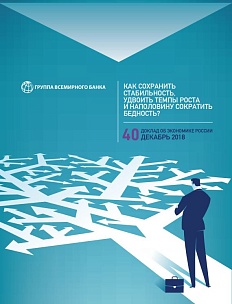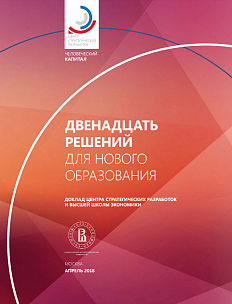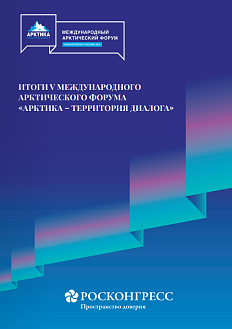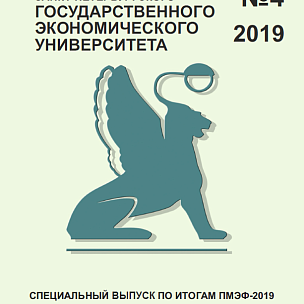The report entitled «National jurisdiction: on a course to the competitiveness of Russia’s legal system» was prepared by All-Russian public organization Association of Lawyers of Russia in collaboration with the Russian Academy of National Economy and Public Administration under the President of the Russian Federation (RANEPA) includes the results of discussions on the topic of national jurisdiction in the framework of the sessions of the Association of Lawyers of Russia held since 2016 at forums organized by the Roscongress Foundation.
The widening boundaries of legal frameworks, the cross-border nature of public and private interests, the ever-changing global conditions, the rapid development of technologies, and the formation of a digital society all contribute to gradual development of a multi-faceted environment for global competition between legal systems and national jurisdictions. The growing competition at all national and international markets poses regional and global challenges to the Russian legal system and its institutions. These challenges are typical for modern socio-economic systems and can be reduced to the task of managing their quality and competitiveness in an effective way.The authors of the report emphasize that the competitiveness of a legal system depends on numerous factors. One of the crucial tasks in the process of developing and implementing a national regulatory policy is to identify these factors, assess their importance, and find ways to monitor and use them for the purpose of strengthening the competitive position of the national legal system. Measures taken to manage the competitiveness of the Russian legal system, as well as the country’s jurisdiction at national level, should be aimed at creating and fostering industries and organizations that could act as drivers for the economy of the Russian legal system and offer legal services that would be competitive at both domestic and international markets.
The authors point out that the institutional design of the Russian legal system makes it possible to not only create effective administrative links in the area of organizing, coordinating, and documenting legal relationships in accordance with the established national, European, and international laws and standards, but also shape individual and collective mindsets and behavior patterns in the social and legal sphere using soft techniques. The authors name stable interpretation of law, established national sovereignty, and an effective legal system as the institutional basis for the attractiveness of the Russian jurisdiction. Cutting-edge digital technologies and the advanced social infrastructure of Russia’s legal system are singled out as dominating factors that can help unlock the Russian jurisdiction’s potential for self-development in the current context of strong global competition between legal systems. The authors divide the factors for institutional attractiveness of the national jurisdiction into several blocks: political (stabilized national development, political continuity, comprehensive national policy in structure-forming spheres of modern human life, etc.), economic (economic structure of the national jurisdiction, a mechanism for financing the system of law enforcement, etc.), social and cultural (a balanced mechanism for overcoming communication barriers in the sphere of the country’s national jurisdiction), and legal (a coordinated mechanism for implementing the national legal policy).
According to the authors of the report, introducing a system for managing the effectiveness of the Russian legal system is an ambitious and large-scale project which requires active participation of the country’s top officials and senior and middle executives of legal institutions, as well as major changes in motivation schemes for legal personnel and in the policy of applying digital technologies to the process of law enforcement. In conclusion, the authors offer recommendations about some elements of the roadmap to managing the competitiveness of the Russian jurisdiction. The recommendations concern the problems of creating favorable legal, social, and cultural conditions for raising institutional attractiveness of the Russian jurisdiction, forming a favorable environment for minimizing the risk of miscarriages of justice and deviant activities of judges, etc.


